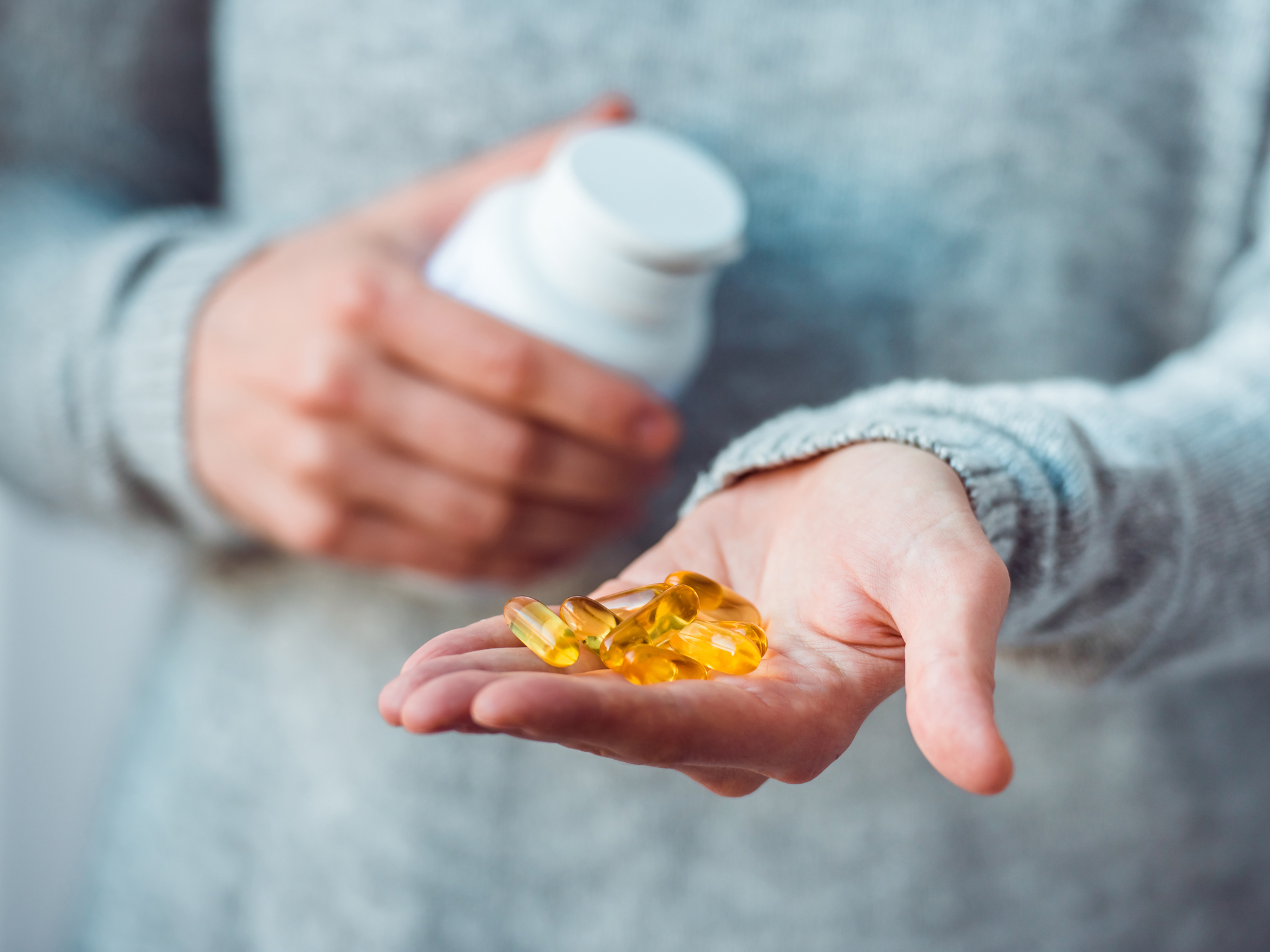Get Easy Health Digest™ in your inbox and don’t miss a thing when you subscribe today. Plus, get the free bonus report, Mother Nature’s Tips, Tricks and Remedies for Cholesterol, Blood Pressure & Blood Sugar as my way of saying welcome to the community!
One must-have supplement for better blood sugar, arteries and bones

The nutritional supplements market is huge.
And while many are familiar with omega-3 fish oils, calcium supplements and vitamins C, B, D and E, there is another vitamin that needs your attention…
As you age or let healthy eating habits fall to the wayside — or worse, both — you’re at much higher risk of suffering from bone loss, heart disease and hardening of the arteries. Yet, in many cases these diseases and conditions can be prevented, even reversed, just by getting enough vitamin K.
Vitamin K’s role and benefits
Vitamin K has been shown to play a key role in strengthening bones, reducing the risk of heart disease and diabetes, and preventing and even reversing osteoporosis; especially in post-menopausal women.
Vitamin K plays a set of important key roles, such as making the protein osteocalcin, which is necessary for strengthening bones.
But it is also essential in making a protein that helps to regulate where in the body calcium is deposited. When it comes to preventing the arteries from hardening, vitamin K helps make the protein matrix GLA (MGP), which directs calcium to the bones instead of allowing it to deposit in the arteries.
The journal Integrative Medicine reported this finding:
“An adequate intake of vitamin K2 has been shown to lower the risk of vascular damage because it activates matrix GLA protein (MGP), which inhibits the deposits of calcium on the walls. Vitamin K, particularly as vitamin K2, is nearly nonexistent in junk food, with little being consumed even in a healthy Western diet. Vitamin K deficiency results in inadequate activation of MGP, which greatly impairs the process of calcium removal and increases the risk of calcification of the blood vessels. An increased intake of vitamin K2 could be a means of lowering calcium-associated health risks.”
Vitamin K is also associated with insulin sensitivity and blood sugar metabolism. According to the Diabetes Council website…
In 2010, a Dutch study was conducted on 38094 people and was followed up for 10.3 years. This study found that those who had good levels of either phylloquinone or menaquinone (MK7) had a reduced risk of developing type 2 diabetes. Similarly, a 2012 detailed and long-term study from Spain was conducted on 1069 people without diabetes who were already taking part in the Prevention with the Mediterranean Diet trial. Every year data was collected to check for diabetes. After one year, people with higher levels of vitamin K were found to have lower risk for diabetes.
How much vitamin K do you need?
The best way to consume vitamin K is through whole food sources. Supplementation is also good, especially if you do not have access to a better diet.
50 to 100 mcg daily is a basic level for healthy individuals. Some advocate postmenopausal women take between 5 mg and 45 mg daily. I would consult with your healthcare provider for details on your specific needs.
In the meantime, because of its many health benefits, I recommend increasing your consumption of foods high in this vitamin.
Best foods containing vitamin K
Vitamin K is found in green leafy vegetables, including broccoli, Brussels sprouts, kale, parsley, spinach, swiss chard and the “greens” (collard, turnip, mustard and beet). It is also found in dairy, fermented dairy (yogurt, cheese), miso, chickpeas beans, liver, soybean oil, wheat bran.
Here are some specifics, for reference:
- Kale contains 565 mcg per 1/2 cup, cooked
- Collard greens contain 530 mcg per 1/2 cup, boiled
- Spinach contains 444 mcg per 1/2 cup, cooked
- Brussels sprouts contain 150 mcg per 1/2 cup, cooked
- Sauerkraut contains 56 mcg per 1/2 cup
- Fermented soybeans, particularly a dish called natto, are the best source of the MK7 form of vitamin K2 that has been shown to help support arterial health and healthy blood flow.
Partnering vitamins K and D
According to research published in the International Journal of Endocrinology, “Animal and human studies suggest that optimal concentrations of both vitamin D and vitamin K are beneficial for bone and cardiovascular health as supported by genetic, molecular, cellular, and human studies… Current evidence supports the notion that joint supplementation of vitamins D and K might be more effective than the consumption of either alone for bone and cardiovascular health.”
Editor’s note: Have you heard of EDTA chelation therapy? It was developed originally to remove lead and other contaminants, including heavy metals, from the body. Its uses now run the gamut from varicose veins to circulation. Click here to discover Chelation: Natural Miracle for Protecting Your Heart and Enhancing Your Health!














